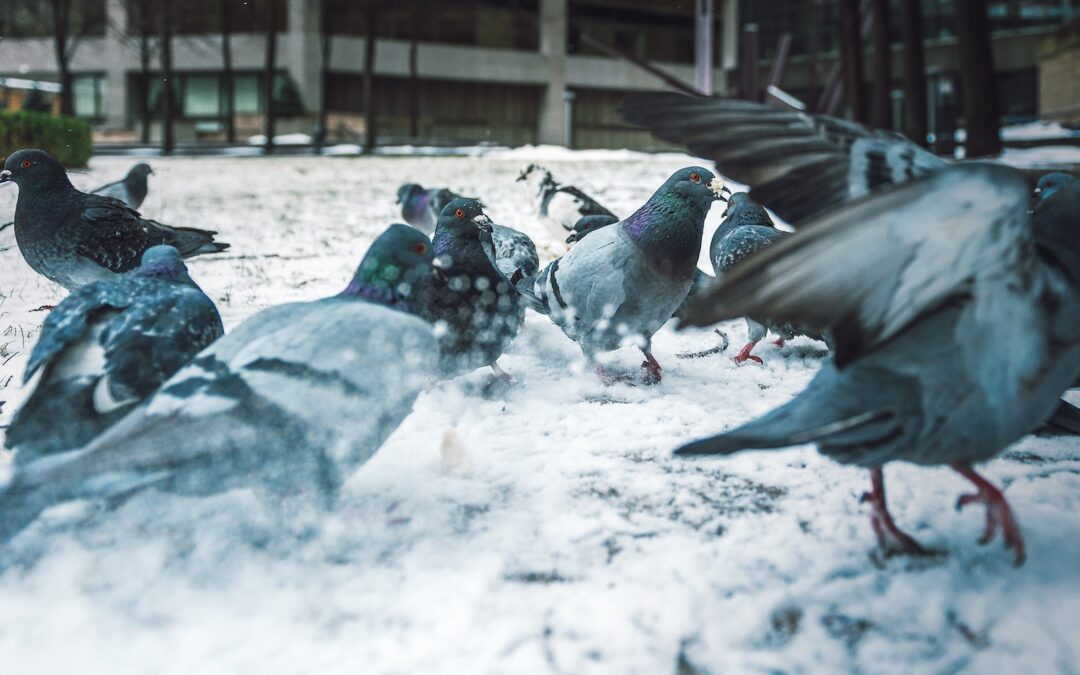
Your guide to Pigeon Control
YOUR GUIDE TO HUMANE PIGEON CONTROL
Introduced to Australia from Europe, feral or pest pigeons have become well adapted to urban environments and steadily increased in population since. Unfortunately, these noisy pests can also carry diseases, parasites, leave a mess and damage your property.
With readily available nesting sites, sources of food and water, pigeons can breed all year round, almost anywhere. They may well choose your home or business as their next preferred spot to create a nuisance!
If you’re worried about a pigeon outbreak, keep reading our blog to learn more about how to responsibly prevente these pests for good.
What questions will this article answer?
How to identify pest pigeons
They are usually grey coloured but can also be brown and white.
Problems caused by pigeons
These noisy pests can carry diseases and parasites, which result in secondary pest outbreaks, cause property and garden damage and contaminate food and water.
Signs of a pigeon outbreak
Look for a large number of pigeons, droppings, feathers and nesting debris on your roof.
DIY ways to avoid a pigeon outbreak
Remove nests, sources of food and water and seal off entry points to your home.
Professional pigeon prevention
We use OvoControl, bird netting, bird spikes, bird wire, Bird Jolt Flat Track, bird gel, bird repellent optical gel and we offer a solar panel proofing service.
Choose Allstate for fast and reliable pigeon control
We have a range of innovative and effective treatments that can help you manage pest pigeons as quickly as possible. We’re available 24/7 to all suburbs of Adelaide in residential, commercial and industrial settings.
How to identify pest pigeons
Grey coloured with a small collar of iridescent feathers around the neckline, pigeons have two characteristic black stripes across each wing. While a majority are grey, you’ll also find brown and white coloured pigeons as well.
Unlike feral pigeons, you can identify domestic pigeons that are kept as pets or for racing by looking for a tag around their leg.
Pest pigeons? Our experienced team is ready to help.
 or
or
Problems caused by pigeons
A pigeon outbreak can lead to the following issues at your home or business:
- Highly acidic pigeon droppings can cause damage to buildings, outdoor furniture, airconditioning units, solar panels and rooftop machinery
- They leave behind an unpleasant odour
- Noise disturbance from chirping, especially from chicks
- Carry and transmit diseases such as histoplasmosis, cryptococcosis and ornithosis (Bird Fancier’s Lung)
- Carry parasites such as bed bugs, bird mites, ticks and clothes moths which can cause secondary pest outbreaks and trigger allergies
- Attract ticks, mites and cockroaches
- Contamination of food supplies and water through droppings, feathers and nesting material
- Slippery pigeon droppings can cause a health and safety hazard on footpaths, stairs and fire escapes
- Pigeons can squeeze through small gaps and enter your roof space
Signs of a pigeon outbreak
Here are some ways you can tell if you have a pigeon infestation:
- Many pigeons roosting and perching on your roof, eaves and window ledges or even nesting under your solar panels
- A large amount of brown-white pigeon droppings
- Nest debris appearing on your roof, such as sticks, twigs, pine needles, straw or grass stems
- Frequent chirping noises from chicks
- Damage to native plants in your garden from pecking
- Feathers accumulating around your roof and yard, in gutters and blocking drains, causing leaks and overflowing in plumbing
Learn more about the signs of a pigeon outbreak here.
Nuisance pigeons around your home? Get fast pigeon control today
 or
or
DIY ways to avoid a pigeon outbreak
The best way to stop a pigeon outbreak is to prevent it from happening in the first place. There are several simple actions that you can take to make sure that your property does not become a potential nesting site.
We recommend removing all possible sources of food and water from your yard, including pet food, water bowls and fallen fruit.
Sealing off potential entry points with wooden panels or mesh, installing mesh screens over chimneys and fixing loose tiles on your roof will help keep them out of your home.
Regularly check your roof for nests and remove them promptly, then disinfect the area. Trim away overhanging tree branches that cover your roof and gutters.
You can even consider using audio and visual deterrents which can be purchased from hardware stores.
Professional pigeon prevention
Sometimes, despite your best efforts, pest pigeons can still persistently cause problems at your home.
At Allstate, we have a range of treatments to manage a pest pigeon outbreak. Our technicians will advise which solution is the most appropriate for your circumstances.
OvoControl
An innovative new treatment that has been shown to significantly reduce bird populations within two years, OvoControl works as a form of pigeon birth control. It uses AI-controlled automatic feeding baits laced with a chemical that inhibits egg fertilisation in female pigeons.
Bird netting
This is used to form a physical barrier to prevent pigeons from accessing your roof.
Bird spikes
Providing an uneven surface to land, particularly on leading edges, bird spikes are commonly used on exposed ledges, sills, girders and steel beams.
Bird wire
A discreet way to protect leading edges of a building, stainless steel bird wire can be secured between vertical posts and makes the surface too unstable for pigeons to land.
Bird Jolt Flat Track
An electrically active surface that works discreetly, the Bird Jolt Flat Track delivers a mild electric shock when pigeons land and stimulate it. It is humane and not harmful to pigeons in any way and can be powered either by an AC or solar charger.
Bird gel
Specially formulated, weather resistant, nearly invisible and nontoxic, bird gel can be spread over nesting areas and discourage birds from landing due to its uncomfortable, tacky consistency.
Bird repellent optical gel
A long lasting and non-harmful method to deter pigeons from an area, bird repellent optical gel not only has a strong scent that is unpleasant for pigeons. It also creates a visual disturbance and confuses pigeons to discourage them from returning to the site.
Solar panel proofing and cleaning
The shelter and warmth underneath solar panels provides an ideal spot for pigeon nesting but can cause damage over time. We can help you to protect your panels by cleaning away the mess left behind by the pigeons and installing a strong mesh around them.
Severe outbreaks
For infestations that cannot be brought under control by any other means, we can physically prevente pigeons if necessary. Our work is always carried out in the most humane and responsible way possible. We are compliant with the National Parks and Wildlife Act 1972 and have the appropriate permits and licenses to ensure a respectful and safe outcome.
Choose Allstate for fast and reliable pigeon control
At Allstate, we understand how stressful and disruptive a pigeon outbreak can be.
That’s why we have a range of innovative and effective, yet humane treatments that can help you rid of pest pigeons as quickly as possible. You can rest assured that all our treatments carried out respectfully and are nontoxic to people, pets and the environment.
We’re available 24/7 for all urgent pest enquiries to all suburbs of Adelaide in residential, commercial and industrial settings.
With a 100% satisfaction guarantee, competitive warranties and payment plans, you don’t need to delay getting rid of pigeons from your home once and for all.

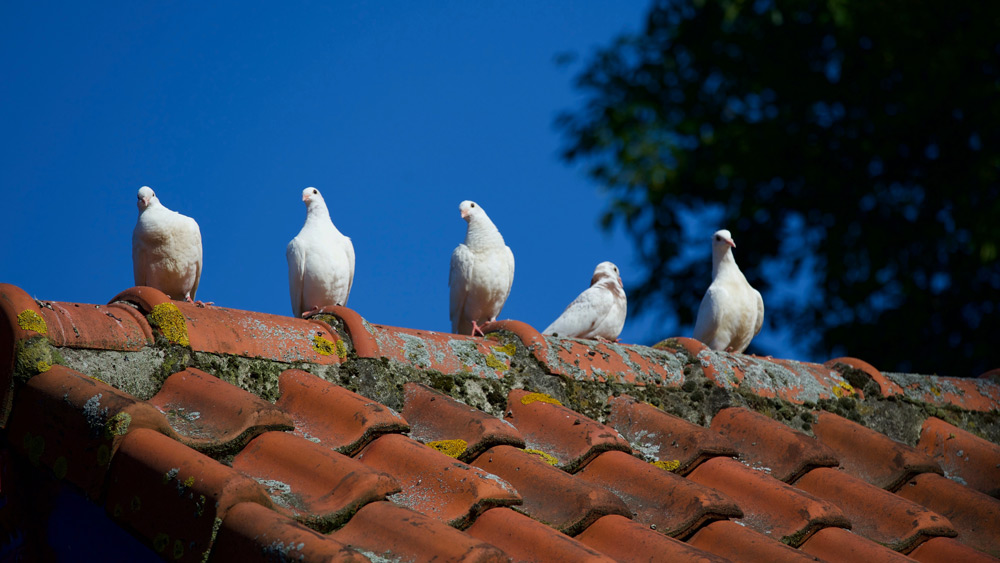
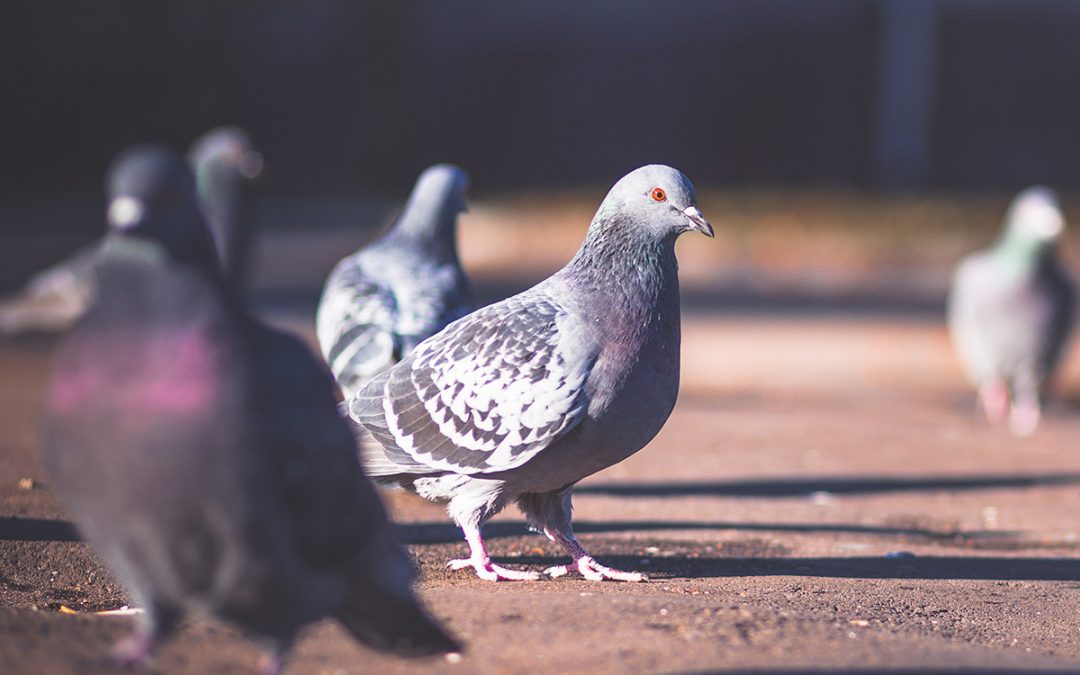
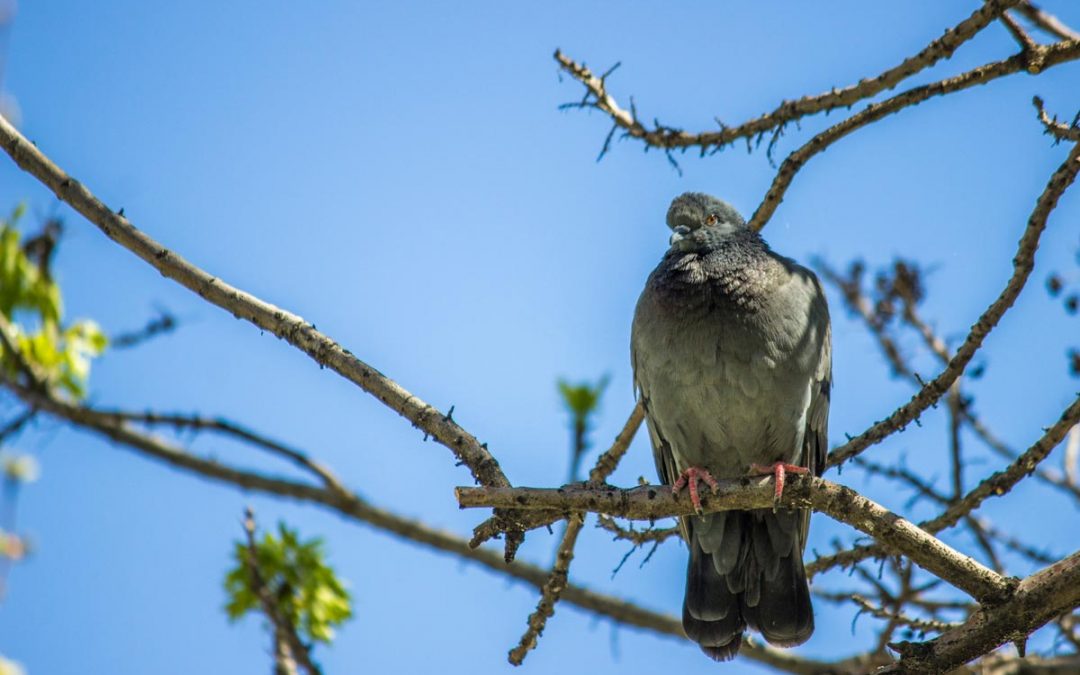
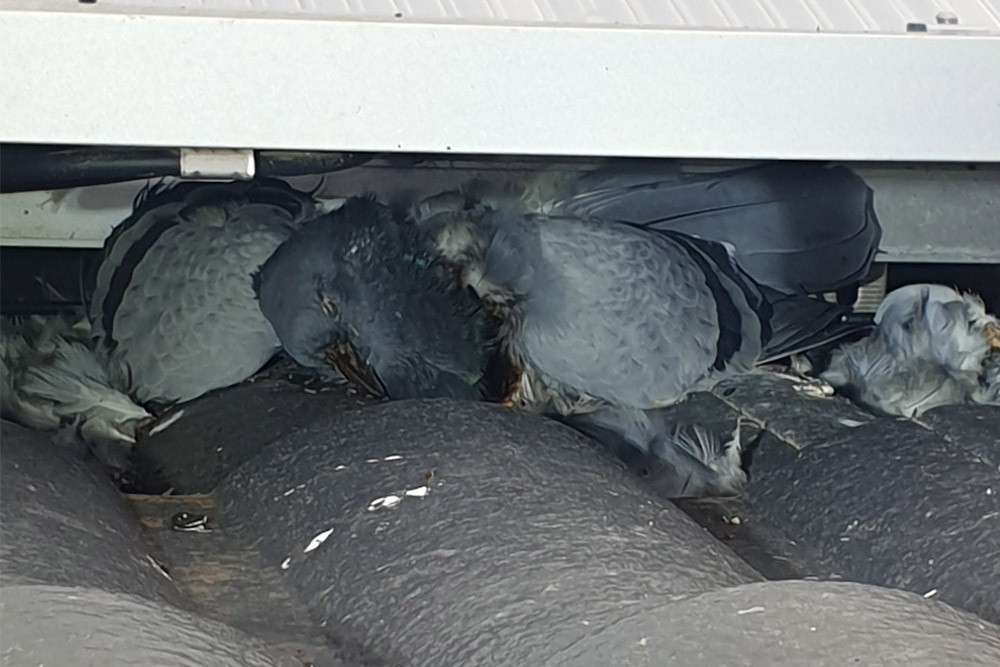
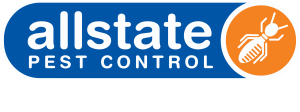


Recent Comments